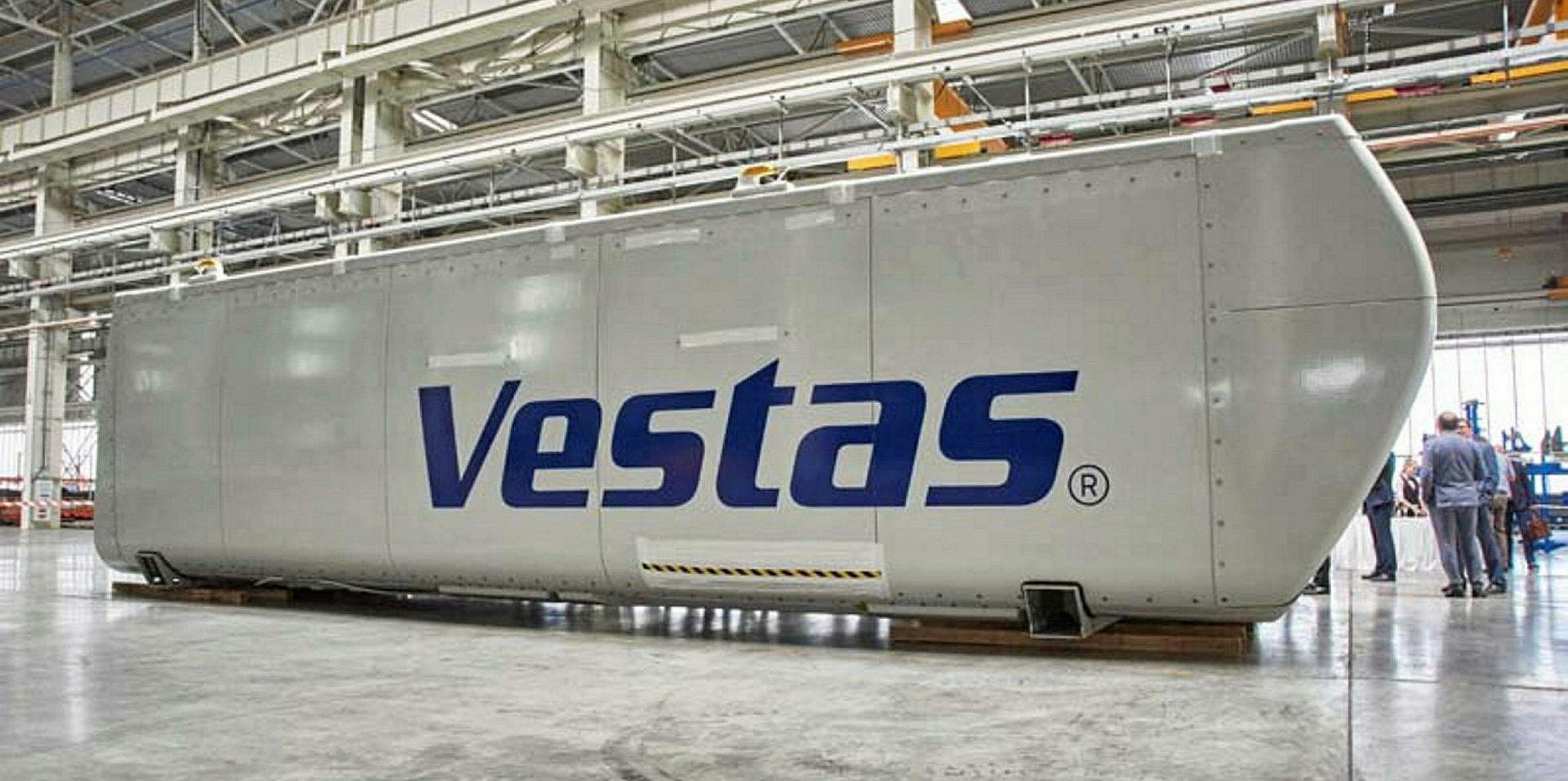UK Wind Auction Reform: Vestas Highlights Threat To Factory Investment And Jobs

Table of Contents
Vestas' Concerns Regarding the UK Wind Auction Reform
Vestas' concerns stem from specific aspects of the proposed reforms to the UK's Contracts for Difference (CfD) auction scheme, the primary mechanism for supporting renewable energy projects. The proposed changes, including alterations to the bidding process and potentially reduced strike prices, are perceived as detrimental to long-term investment viability. Vestas argues these reforms significantly increase the risk associated with developing wind energy projects in the UK, making the country less attractive for investment compared to other European nations.
Key negative impacts highlighted by Vestas include:
- Reduced profitability for wind projects: The proposed changes could drastically reduce the profitability of wind projects, making them less appealing to investors. This is particularly concerning given the already high capital costs associated with offshore wind farm development.
- Uncertainty for long-term investment planning: The lack of clarity and stability in the auction process creates significant uncertainty, making it challenging for companies like Vestas to plan long-term investments in UK factories and infrastructure.
- Increased risk for investors: The increased uncertainty and reduced profitability heighten the risk profile for investors, potentially deterring much-needed capital from the UK wind energy sector.
- Negative impact on UK supply chain development: Reduced investment will hinder the development of a robust and competitive UK supply chain for wind energy, limiting domestic job creation and economic benefits.
- Fewer jobs created in the UK wind energy sector: The overall reduction in investment will inevitably lead to fewer jobs being created in the UK wind energy sector, impacting both manufacturing and installation roles.
- Loss of UK competitiveness in the global wind energy market: The UK risks losing its competitive edge in the global wind energy market if the proposed reforms discourage investment and stifle innovation.
Impact on UK Factory Investment and Job Creation
The proposed UK wind auction reform directly impacts Vestas' investment plans for its UK factories. The company has warned that the reduced profitability and increased uncertainty could lead to scaled-back projects or even factory closures. This could result in significant job losses across the UK.
The potential job losses are substantial and far-reaching:
- Direct job losses in Vestas factories: Reductions or closures of Vestas factories would lead to immediate and significant job losses for skilled manufacturing workers.
- Indirect job losses across the UK supply chain: Reduced investment in wind projects will have a ripple effect, impacting companies across the UK supply chain, from component manufacturers to installation and maintenance firms.
- Loss of skilled labor and expertise in the UK: The loss of jobs will lead to a drain of valuable skilled labor and expertise, hindering the UK's ability to compete in the burgeoning global renewable energy sector.
The wider economic implications of reduced investment in the UK wind energy sector are substantial, including reduced tax revenue, decreased economic activity, and a blow to the UK's green industrial revolution aspirations.
Alternative Approaches and Policy Recommendations
Rather than hindering growth, the UK wind auction system should be designed to foster investment and support the UK's ambitious renewable energy targets. Alternative approaches could include:
- Increased government support for early-stage wind projects: Providing greater support for the initial stages of wind farm development could mitigate the risks associated with large-scale investments.
- Streamlining planning permissions for wind farms: Reducing bureaucratic hurdles and streamlining the planning process for wind farm projects would accelerate investment and deployment.
- Providing greater clarity and stability in the auction process: A clearer, more stable auction system would reduce uncertainty and encourage long-term investment.
- Focusing on long-term contracts to incentivize investment: Long-term contracts provide greater investment security and incentivize companies to commit to long-term projects in the UK.
The Wider Context of UK Renewable Energy Policy
The proposed UK wind auction reform sits in stark contrast to the UK's ambitious renewable energy goals, including its commitment to net-zero emissions by 2050. These reforms threaten to undermine the UK's progress towards these targets by discouraging investment in vital renewable energy infrastructure. The impact extends beyond domestic energy security; it also jeopardizes the UK's leadership role in the global renewable energy market.
Conclusion
Vestas' concerns regarding the UK wind auction reform are serious and far-reaching. The proposed changes pose a significant threat to factory investment, job creation, and the broader UK renewable energy sector. The potential consequences include reduced renewable energy deployment, hindering the UK's progress towards its net-zero targets and damaging its international competitiveness. The future of UK wind energy investment hinges on a sensible approach to auction reform. The current proposals risk undermining the UK's green ambitions and damaging its economic prospects. We urge readers to engage with the debate surrounding UK wind auction reform, participate in consultations, and contact policymakers to advocate for changes that support a thriving UK wind energy sector and protect UK jobs. The future of UK wind energy policy, and indeed the UK's green industrial revolution, depends on it. Make your voice heard and demand changes that support a thriving UK wind energy sector!

Featured Posts
-
 Did Benson Boone Copy Harry Styles Addressing The Controversy
Apr 26, 2025
Did Benson Boone Copy Harry Styles Addressing The Controversy
Apr 26, 2025 -
 Anna Wong On The Looming Food Crisis Empty Shelves
Apr 26, 2025
Anna Wong On The Looming Food Crisis Empty Shelves
Apr 26, 2025 -
 Long Live The Lente Understanding Springtime Terminology
Apr 26, 2025
Long Live The Lente Understanding Springtime Terminology
Apr 26, 2025 -
 Benson Boone Photos 2025 I Heart Radio Music Awards
Apr 26, 2025
Benson Boone Photos 2025 I Heart Radio Music Awards
Apr 26, 2025 -
 Anna Wongs Warning Impending Food Shortages
Apr 26, 2025
Anna Wongs Warning Impending Food Shortages
Apr 26, 2025
Latest Posts
-
 The Karen Read Case A Chronological Overview Of The Trials
Apr 26, 2025
The Karen Read Case A Chronological Overview Of The Trials
Apr 26, 2025 -
 Karen Read A Year By Year Account Of Her Legal Battles
Apr 26, 2025
Karen Read A Year By Year Account Of Her Legal Battles
Apr 26, 2025 -
 A Timeline Of Karen Reads Murder Trials And Convictions
Apr 26, 2025
A Timeline Of Karen Reads Murder Trials And Convictions
Apr 26, 2025 -
 Resumption Of Construction Worlds Tallest Abandoned Skyscraper Project
Apr 26, 2025
Resumption Of Construction Worlds Tallest Abandoned Skyscraper Project
Apr 26, 2025 -
 Construction To Restart On Worlds Tallest Abandoned Skyscraper
Apr 26, 2025
Construction To Restart On Worlds Tallest Abandoned Skyscraper
Apr 26, 2025
